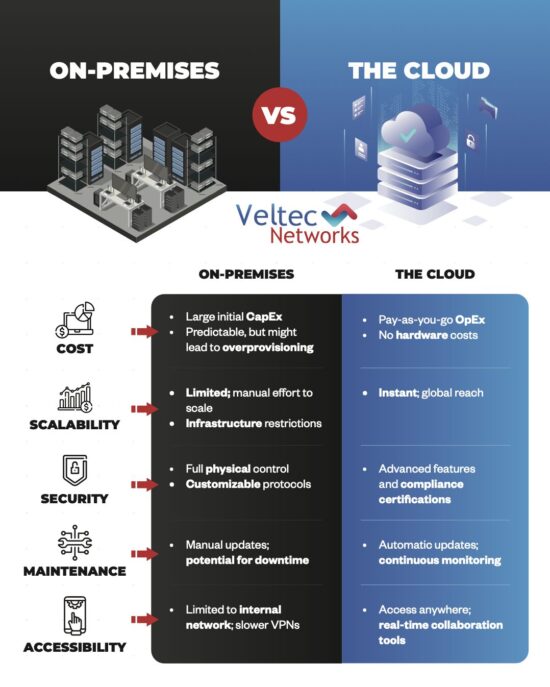Cloud storage is a convenient and cost-effective means of storing, archiving and sharing important data; and it’s been steadily growing in popularity among healthcare providers. But with this added flexibility and ease of access comes a new set of security concerns, especially around HIPAA compliance and other privacy and security regulations.
The level of scalability and data sharing capabilities that cloud solutions offer are quickly becoming must-haves across the healthcare industry. With new providers pouring into the market, and privacy and security guidelines becoming more strict, it’s more important than ever to make sure the provider you choose to partner with is up to standards.
Before you settle on a cloud provider, you’ll need to determine how they manage health information and what type of safeguards are in place to keep your data secure. The following four criteria will help you choose a cloud provider that will not only allow you to make better use of your healthcare data but keep your practice secure and compliant.
Encryption – Where public or shared cloud storage is concerned, data encryption is a critical component. Encryption adds an extra layer of protection and compliance, keeping your data safe from unauthorized users. Not all providers offer end-to-end encryption as part of their service offerings, making this an important topic to discuss.
Backup – This may seem like an odd question to ask when you’re already talking about cloud storage, but redundant data backups are critical. You’ll want to find out what your prospective provider’s retention policies and backup methods entail before handing over your data. Even the top names in cloud storage have had incidents that resulted in the loss of client data, which isn’t a situation you want to find yourself in. It might be wise to consider a secondary cloud provider or an on-site storage option for added protection if your primary cloud provider doesn’t offer the level of redundancy your practice needs to feel confident in the safety of your data.
Access Monitoring – Keeping your data out of the hands of unauthorized users should be a top priority for any cloud provider. Precautions such as advanced firewalls and intrusion detection systems that can detect hackers and other malicious activity should be in place. You should be provided with documentation that clearly shows the safeguards your provider has implemented. Reviewing this documentation and researching previously reported intrusions will help you discover which providers are the most secure and which have a history of coming up short.
Contracts and Agreements – Business Associate Agreements and Service Level Agreements are a great first step towards ensuring that your cloud provider is taking the safety of your healthcare data seriously. But, as with any contract, it’s crucial to read over these documents carefully. You don’t want ambiguous wording to lead to an unpleasant surprise down the road, especially when it comes to the way your provider approaches the handling of sensitive data or their attitude towards data ownership. You need to know what will happen to your data if your provider were to go out of business, and if they have a history of not paying agreed-upon fees to clients for service disruptions, or have locked clients out of their data in the past–a situation that would result in a HIPAA nightmare.
Keep in mind that these tips are only intended as a starting point. Tighter security may be a requirement in some instances, and additional steps must be taken to ensure adequate data protection and regulatory compliance. As a general rule, any provider that calls itself a healthcare cloud provider and works closely with any healthcare entity must follow strict security guidelines that meet the criteria above.
Take the time to do your due diligence before making a final decision. And avoid working with any provider that doesn’t answer your questions to your satisfaction, isn’t forthcoming with vital information, or gives the impression that they aren’t entirely upfront with you about their policies.
To learn more about the benefits a cloud storage solution can offer your practice or clinic, contact Veltec Networks at (855) 5-VELTEC or info@veltecnetworks.com.
Veltec Networks
1967 O’Toole Way,
San Jose, CA. 95131






